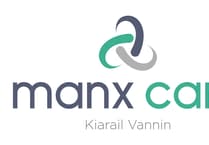A petition put forward by the Dyslexia Advocacy Group has been moved to the Tynwald register for November.
The petition calls for Tynwald to consider the establishment of a ‘select committee’ to examine and report on the incidence of learning differences and the ‘adequacy’ of current educational provisions in the island.
Brought forward by the Dyslexia Advocacy Group, the petition was presented to MHKs on Tynwald Day this year.
The group looks to improve education in the island for children with dyslexia, dyscalculia, dyspraxia and dysgraphia.
Founded by Julia Bell, the group collaborates with stakeholders across the Isle of Man to advocate for policies that support neurodiverse students.
Talking about the petition, a spokesperson from the group said: ‘This development marks a key advancement in the group's ongoing efforts to enhance educational support for neurodiverse pupils.
‘The group extends its gratitude to Rob Callister MHK for his diligent follow-up on the petition, and to Ann Corlett MHK and Dawn Kennish MLC for their invaluable advice and support.
‘The establishment of such a committee is not guaranteed. However, it is crucial for ensuring our education system aligns with the Equality Act (2017), addressing the needs of all students to enable them to achieve their full potential.
‘Improving identification and educational support for neurodiverse students is important. Enhanced educational provisions not only support the individual rights of students but also strengthen the community by promoting an inclusive environment that values diversity and equality.’
The Dyslexia Advocacy Group has also called on members of the public to support the petition, as ‘public backing can significantly influence Tynwald members to vote in favour of establishing the select committee’.
The group suggests that this can be done in three ways: engage by liking and following their Facebook page, advocate by contacting local MHKs to express support and by attending their meetings on the first Wednesday of every month at the Family Library in Douglas.
Group founding member, Mrs Bell, said: ‘As the news has been circulated in the media, it is now more important than ever to make our voices heard.
‘By uniting as a community, we can highlight the public interest in this issue and encourage a favourable outcome that will benefit current and future generations of students on the Isle of Man.’
It is estimated that one in 10 people are dyslexic. Statistics for levels of dyslexia in Manx schools are not available, partly because that it is not the term used.
Julia added: ‘My motivation and drive is based on my own experiences of having a child with dyslexia in mainstream school.
‘My intention is to support teachers. Teachers want to help but unfortunately there is a lack of training and resources.’


.jpeg?width=209&height=140&crop=209:145,smart&quality=75)

